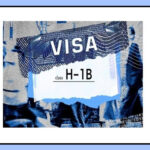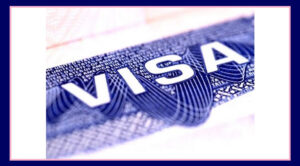In a Reddit AMA session, a career diplomat and Schengen visa officer gave a behind-the-scenes look into how visa decisions are made.
This officer, who has worked in multiple embassies, handles up to 200 visa applications per day.
Key Reasons Behind Schengen Visa Rejections
The most common reason for a visa refusal is the applicant’s weak ties to their home country.
If there is any doubt that the applicant will return home after the trip, the chances of rejection go up.
Visa officers look for signs like:
A stable or well-paying job
Family responsibilities
Owning property or a business
These are signs that someone is likely to return home after visiting the Schengen area.
Other Common Red Flags
Here are more issues that raise concern for visa officers:
Fake or unverifiable hotel or flight bookings
Travel plans that seem unrealistic or overambitious
Mismatch between the person’s finances and their accommodation choices
For example, someone with very little savings planning to stay in a luxury hotel, or someone wealthy booking the cheapest possible stay, could raise suspicion.
Even if documents aren’t fake, such inconsistencies can still lead to a visa rejection.
Documents and Letters
Visa officers usually skim or ignore cover letters.
However, a clear and honest sponsorship letter can be very useful—especially for student visa applications.
Student Visas Are Rarely Rejected
If the applicant is accepted by a recognized university and all required documents are in order, Type D student visas are almost never rejected.
Long-Term Visas and Travel History
For long-term or multiple-entry visas, the “cascade regime” applies.
This means longer-term visas are only given to people who have used shorter-term visas responsibly.
If someone doesn’t have a strong travel history, they will usually get a visa that’s valid only for the specific trip they applied for.
Proving Strong Ties Without Property or Business
Applicants who don’t own property or run a business should try to provide:
Proof of a stable, long-term job
A letter from their employer confirming their role and approved leave
But, even a strong job might not be enough in some cases, depending on the applicant’s nationality.
Religion Is Not a Factor—But Nationality Might Be
The officer clearly stated that religion does not affect the outcome of a visa application.
However, certain nationalities may face more scrutiny due to political or diplomatic reasons, which can impact the decision.
Summary
A Schengen visa officer revealed during a Reddit AMA that the main reason for visa rejection is weak ties to the applicant’s home country.
Other red flags include fake bookings, financial mismatches, and unrealistic plans. Student visas are rarely denied if documents are in order.
Long-term visas require a solid travel history. Religion is not considered, but nationality may affect how strictly applications are checked.

























